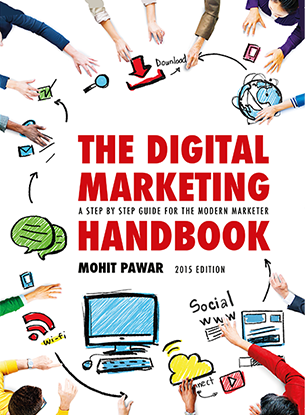
Earlier I shared with you how you can write a book fast.
That path works if you already know about a topic and have a lot of say about it.
But if you are still not an expert and want to write a book to fulfill a dream, take a leap in your career or grow your business – then you should follow your curiosity.
This is how Nir Eyal wrote WSJ Bestseller Hooked and Daniel Pink wrote New York Times Bestseller Drive.
Nir wasn’t an expert in the psychology of how products change human behavior like he is today. That’s why he started exploring the topic and shared his thoughts about it on his blog. After doing it for many years, he built awareness for his work. At that point he received an email from a prominent agent that said:
“Hi Nir, …….. I don’t know if you’ve already started down this road or whether writing a book interests you, but I’d be delighted to have a conversation with you if you are interested.”
You may not get big name agents to write to you but you can still become really good at something by following your curiosity, learning more about it and sharing it in a place where others can see it.
If are looking for steps to follow, here they are.
5-Step Process: How to Write A Book Even When You Are Not An Expert [And Become an Expert in The Process]
STEP 1: Identify What You Are Curious About
When: [Do this today or within a week of reading this.]
Something you like reading and thinking about even when you are not being paid for it or even if it is not part of your day to day work. It can also be something you enjoyed doing as a kid.
You can also choose something that is an extension of what you do. A new field in your chosen area of work that is emerging, interesting and lucrative.
This is step one.
STEP 2: Start Learning More About It
When/For how long: [First 6-9 Months, it continues later also,]
You can use Feynman technique to learn and master anything.
Here is the essence of technique,
- Pick a topic that you want to learn about. Add the topic on top of a sheet and write anything you know about this topic in this sheet
- Then pretend to teach it to a child by explaining it in your own words
- Whenever you are stuck, go back to your learning source and add your new learning to our sheet
- Continue to follow this process and keep on adding your learning to your sheet. Continue to organize and simplify your notes until you make it super simple and can teach it to a child.
Make a learning plan so that you stay on track.
In your learning plan identify your sources of learning. These can be anything – books, blogs, videos. Set a schedule. Daily is good. Once or twice a week is ok too. Then act on this plan so that you can continue to master your chosen topic using the Feynman technique as shared above.
STEP 3: Document Your Learnings
When/For how long: [Goes on alongside learning]
You can write, publish videos or record and share audio.
Do it as a learner or enthusiast in the beginning. Give it a name and a home. Your writing can live on a blog, videos on YouTube, and if you decide to host a podcast you can use Anchor to host it.
Give it a name. Something like The blog/vlog/podcast of a “your chosen theme” enthusiast.
After doing it for 6-12 months you’ll start to get a feel of this space. That’s when you can start thinking about the next stage.
STEP 4: Package What You Are Documenting
When/For how long: [At 9-12 months mark]
There are many ways you can do it.
Here is what I prefer.
Create a document to create your outline for packaging.
Pick the books you chose to learn – up to ten. Now, copy the table of contents of these books into your packaging outline document (POD).
In total, you’ll have 40-100 chapter headings. Remove the duplicates. That’ll leave you with 20-30 headlines/chapter topics.
Now go back to your blog/videos or podcasts that you have already published, pick the URLs and add them under the relevant headline in your POD. This POD is the foundation from where your book or workshop will emerge.
There will be headlines in your POD that you still don’t know much about. Add these to your learning bucket and proceed to learn and document as shared above. There may be 10-20 items here. You can cover these in 20 weeks at the rate of one per week.
STEP 5: Start Talking About Your Book Plans and Get Feedback
When/For how long: [9-12 month mark, at the time when you build your POD]
Share with those you know and who will be interested in the kind of book you plan to write. Tell them that you are planning to write a book. A short note will do.
Then every other month share your progress with them one on one.
I’d suggest doing this with 10-20 people. These will become your alpha readers.
Publish these same updates on your primary publishing channel (blog or YouTube). This way your audience there will also get excited about what is coming. From here you’ll get your beta readers.
Both alpha and beta readers will give you feedback on your book, and help you fill the gaps and make it better. Alpha first and beta after that.
Getting feedback and seeding your book among early readers do not end here. But this is how you start. I hope to write more about seeding your book in a separate post.
By following this 5-step process you’ll be well on your way to writing your first book even if you are not an expert today.
Tweet me [@mohitpawar] or write to me if you have questions.
Optional Step
Even before you write your book, you can start using your blog or video channel to get new clients, or to stand out as you try to get a new job.
To go one step further, seek out speaking opportunities at smaller to refine your understanding of what you are publishing and stress test it.
If your goal is to become a published author then your quest will not end with writing the book. You’ll need to find a publisher. That’s a different beast and starts with writing a proposal. I hope to write about that too. Stay tuned!
Hope you found this post useful and will use it to start the journey of following your curiosity, use it to build your expertise in your chosen are and establish it with a book with your own name on it 🙂



Pingback: Learn To Pace Yourself - Mohit Pawar.com
Pingback: 31-Day Daily Writing Challenge: What I Learned By Writing A Post A Day For A Month - Mohit Pawar.com
Pingback: Blogging for Beginners: Advice for A Teenage Blogger - Mohit Pawar.com
Pingback: Leave Things Better Than You Found Them - Mohit Pawar.com
Pingback: Should You Write a Book? - Mohit Pawar.com
Pingback: My Top 10 Articles Of The Year - Mohit Pawar.com